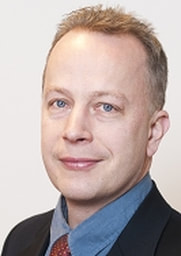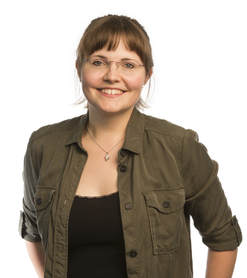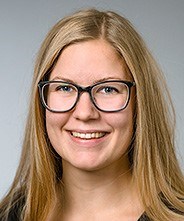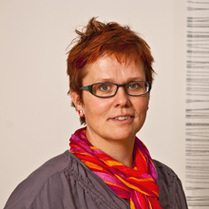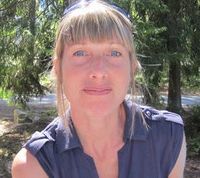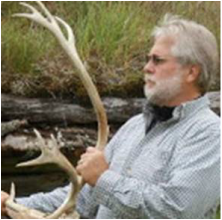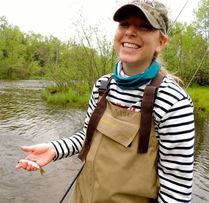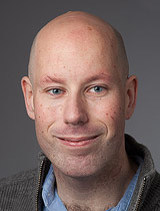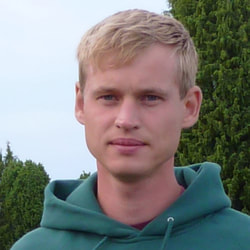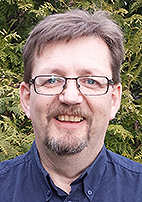Current Group Members
|
Göran Ericsson
Professor in Wildlife Ecology (chair)
My professorship focuses on three main topics:
I serve on the SLU-university board as an elected representative for the teachers and researchers. Commonly I am called to serve on various boards and committees of trust nationally and internationally. |
|
Camilla Sandström
Professor in Political Sciences
My research focuses on three interrelated topics:
|
|
Sabrina Dressel
PhD student
My PhD project concerns the governance of wildlife in Sweden with a special focus on the adaptive moose management system. I will evaluate its current performance and analyse the adaptive capacity for multi-species management by synthesizing individual and collective responses to future challenges of wildlife governance. My methods include quantitative and qualitative approaches to explore the existing collaborative arrangements from different perspectives and to assess the individual and collective adaptive capacity. The goal of my project is to contribute to efficient and legitimate governance of wildlife by identifying improvements that can be made to the institutional design and collaborative processes to account for the increasing complexity and move towards multi-species management. My research interest is driven by my strong belief that we need to integrate social science based research in order to successfully manage wildlife and its habitats within nowadays multi-use landscapes. I have a diverse background with social science research experience, a M.Sc. in Wildlife Ecology & Wildlife Management and a B.Sc. in International Forest Ecosystem Management, as well as working experience within forestry, agriculture and hunting. |
|
Katarina Hansson
PhD student I have a B.Sc. in Governance and Administration and I recently completed my Masters’ degree in Political Science, both from Umeå University. During my time studying at advanced level I have specialized in governance of wildlife, especially large carnivore governance in a Scandinavian perspective. In my thesis, titled ‘Assessing total legitimacy in the Swedish large carnivore policy’, I set out to explain the legitimacy deficit in Swedish large carnivore governance by exploring the policy content and analysing it using the theoretical framework of total legitimacy in environmental policy. Parallel to my studies I have worked as a research assistant in different projects revolving around the interactions between society and wildlife in different ways, for example wild game meat consumption, actor- and institutional features of environmental governance modes and policymaking. Primarily, I have worked with qualitative methods during this time. I am currently working as a research assistant in a project studying the hunting license in Sweden. |
Associated Researchers
|
Annelie Sjölander Lindqvist
Associate Professor in Social Anthropology, University of Gothenburg
|
|
Maria Johansson
Professor in Environmental Psychology, Lund University My research in environmental psychology concerns human environment transactions from the individual’s perspective. The focus is on Public perception of biological diversity, management and conservation, and cultural ecosystem services. The role of social trust and quality of life in wildlife management. People’s emotions towards large carnivores, in particular feelings of fear and evaluations of interventions to reduce fear of these animals. Other research areas includes associations between individual factors, urban design and travel mode choice, with a special focus upon the artificial outdoor lighting, human behaviour and energy efficiency in buildings, and design of health care environments and human psychological well-being. Most projects are usually carried out in real world contexts together working with multidisciplinary research teams. I teach environmental psychology at basic and advanced levels, and advise PhD-students in the discipline primarily at Lund Institute of Technology, but also at other universities. |
|
Shawn Riley
Professor of Human Dimensions of Wildlife Management, Michigan State University My current research projects include: extent and effect of wild harvested meat consumption under various forms of governance in the US and Sweden; causal factors in the decline of deer hunter numbers in Michigan; human tolerance of wildlife in suburban settings; public trust and confidence in state wildlife agencies; and changing human values toward wildlife and wildlife management in the US. My active outreach program works to improve capacity of resource agencies to make effective decisions, and professional development of agency personnel. My regular classroom teaching is a required upper division course, Human Dimensions of Fisheries and Wildlife. |
|
Amber Goguen
PhD student I’m a University Enrichment Fellow and National Science Foundation Graduate Research Fellow pursuing a Ph.D. in the Department of Fisheries and Wildlife at Michigan State University in the USA. I recently completed my M.S. in Fisheries and Wildlife from MSU. My thesis, titled Sharing and Consuming Wild harvested Meat: Providers and Receivers of Venison, explored the extent and mechanisms of wild harvested meat sharing and consumption in Michigan, USA. I earned a B.S. in Wildlife and Fisheries Conservation and a B.A. in Studio Art from the University of Massachusetts-Amherst. Broadly, my graduate research focuses on how the traditional use of natural resources couples human and natural systems. My dissertation research seeks to describe and assess 1) how hunter harvested wildlife meat (a provisional ecosystem service) produced from recreational hunting in the global north is used and distributed; 2) factors that affect use and distribution of hunter harvested wildlife meat; 3) the effect of hunter harvested wildlife meat on perceived relevancy of hunting and hunters to society; and, 4) the influence of formal regulated markets on these factors through cross case comparison of the United States and Sweden. |
Previous Group Members
|
Max Eriksson
My main research focus is on the interaction of social and natural systems. As a political scientist I am particularly interested in how natural resource use is regulated through policy, and how policy can be used to mitigate conflicts over natural resources. My PhD work revolves around wolves and wolf policy, and how conflicts related to wolves can be understood a symptom of urban-rural inequalities in political power. Using statistics and theories from social science I try to bridge the gap between theory and empirics and in doing so make research findings more relevant for policy. |
|
Per Ljung
My PhD project at SLU concerned wildlife use, mainly attitudes toward hunting but also profiling of trap users. One of my findings is that attitudes toward hunting are related to frequency of game meat consumption and number of friends who hunt. The great support of hunting in Sweden can hence be explained with hunting being so well integrated into society. |
